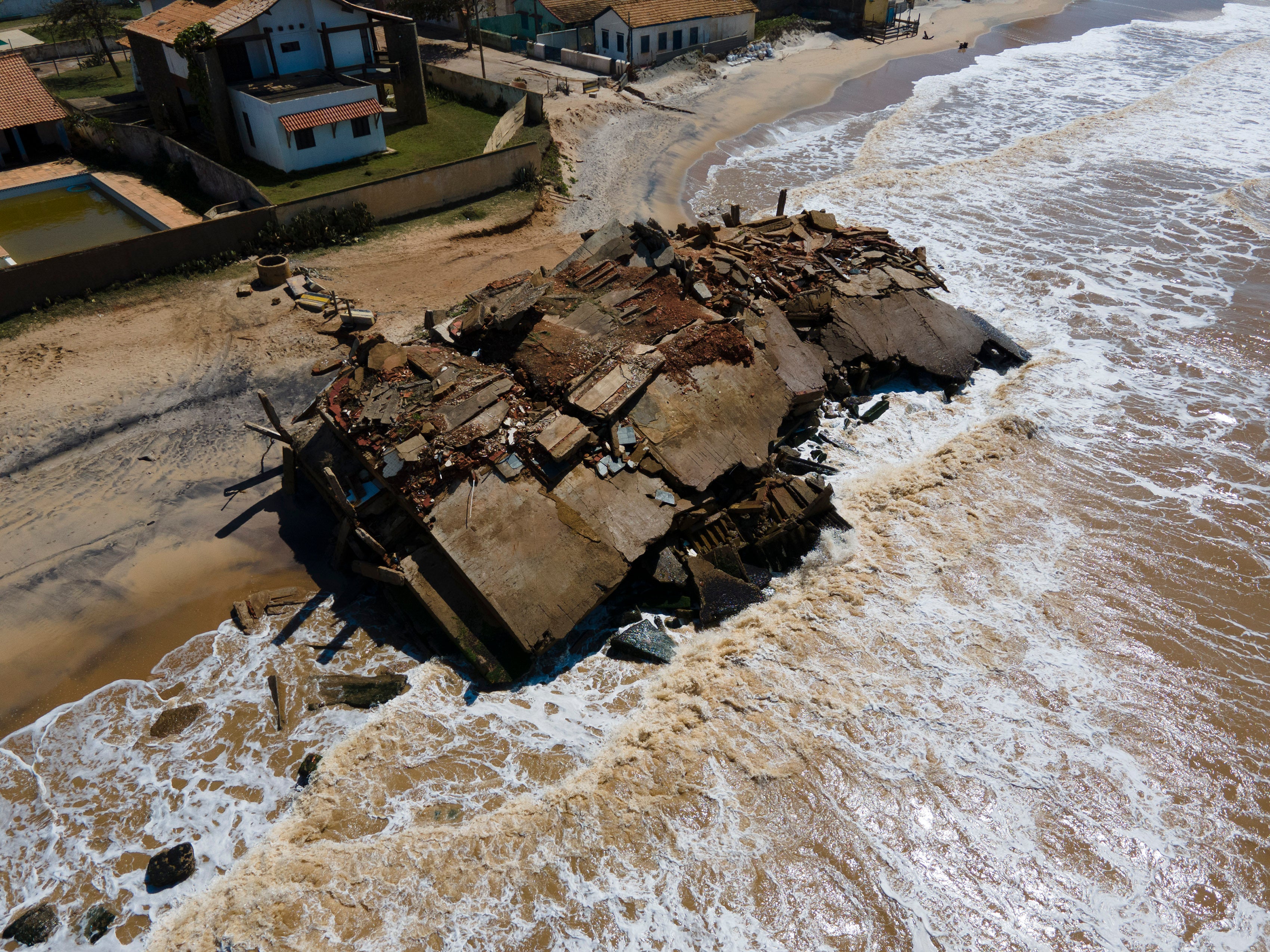Brazil city district slipping into sea after river diverted
Over the past half century, the Atlantic Ocean has been slowly and relentlessly consuming Atafona, part of the Sao Joao da Barra municipality that is 250 kilometers (155 miles) from Rio de Janeiro’s capital and home to 36,000 people

Your support helps us to tell the story
From reproductive rights to climate change to Big Tech, The Independent is on the ground when the story is developing. Whether it's investigating the financials of Elon Musk's pro-Trump PAC or producing our latest documentary, 'The A Word', which shines a light on the American women fighting for reproductive rights, we know how important it is to parse out the facts from the messaging.
At such a critical moment in US history, we need reporters on the ground. Your donation allows us to keep sending journalists to speak to both sides of the story.
The Independent is trusted by Americans across the entire political spectrum. And unlike many other quality news outlets, we choose not to lock Americans out of our reporting and analysis with paywalls. We believe quality journalism should be available to everyone, paid for by those who can afford it.
Your support makes all the difference.Decades ago, Júlia María de Assis thought someday she would take over the hotel her father had begun building in Atafona, a seaside district in Brazil's northern Rio de Janeiro state.
But the very attraction that drew the tourists to Atafona – the sea – became its foe. Advancing water put the hotel’s construction on hold until, 13 years ago, the ocean’s force finally tore it down. Almost 500 other buildings have succumbed, too.
“It was going to be 48 suites – a big hotel that never started operations,” said de Assis, 51, standing beside rubble that once composed her family’s dream. “Even though the hotel’s structure was strong, every time the waves hit the building they damaged it and, finally, it collapsed.”
As a result of human action, over the past half century the Atlantic Ocean has been relentlessly consuming Atafona, part of the Sao Joao da Barra municipality that is 250 kilometers (155 miles) from Rio de Janeiro's capital and home to 36,000 people. Due to climate change, there is little hope for a solution. Instead, Atafona will slip into the sea.
The Paraiba do Sul River, which originates in neighboring Sao Paulo state, brings sediment and sand to Atafona where it empties into the Atlantic Ocean. Its flow was mostly diverted in the 1950s to provide water to the growing capital, which weakened Atafona’s natural barrier to the ocean, said Pedro de Araújo, materials technology professor at the Fluminense Federal Institute.
“Less land sediment and sand that stabilized the coast made it so the sea is eating away at the city,” said de Araújo, who is pursuing a doctorate analyzing river erosion and seeking to model what that will mean for its delta going forward. He estimates that the river has one-third of its original flow.
Deforestation of mangroves in recent decades also left Atafona more vulnerable, said de Araújo. The sea’s average position moves some five meters (16 feet) inland every year, according to the professor.
“Sometimes the water comes up to my knees. My biggest fear is that one day it will take my hut,” fisherwoman Vanesa Gomes Barreto, 35, said at the stall where she sells her catch. “There was a chapel here, a bakery. It was a very large city, of which only a piece remains. The sea swallowed everything, even my childhood.”
Specialists have evaluated possible solutions, such as construction of artificial barriers or depositing vast quantities of sand, but none appear effective enough to halt the ocean’s advance. Global sea level rise due to melting ice means destruction will continue, and at a faster rate, de Araújo said.
People often ask de Assis, who thought she would inherit a hotel, if her city's reversal of fortunes saddens her. She says she is grateful she was born in Atafona, but that humans need to respect nature.
“I feel nostalgic for the house where I spent summers,” she said, and pointed to the sea. “It’s at the bottom of the Atlantic Ocean.”
___
Silva de Sousa reported from Rio de Janeiro.